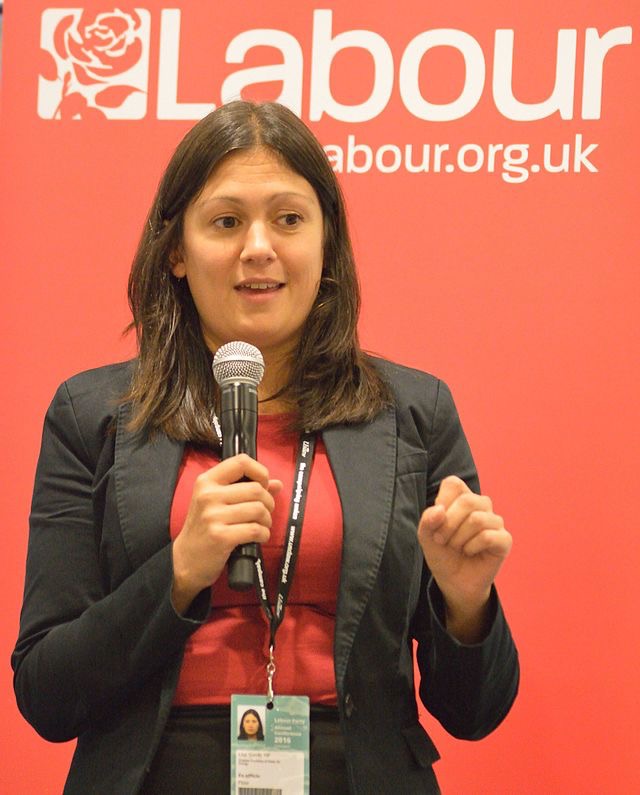Lisa Nandy has come under fire after appointing the chief executive of a Muslim charity to her new Civil Society Covenant steering committee whilst excluding representatives from Christian, Hindu, Jewish, Sikh, and other specific faith groups, prompting accusations of discrimination and preferential treatment.
The Culture Secretary appointed Fadi Itani OBE, chief executive of the Muslim Charities Forum (MCF), as the only faith-specific representative on the 15-member advisory group for the Civil Society Covenant, which aims to promote “social cohesion” by bringing together volunteers, charities, faith organisations and others.
Whilst Faith Action, an interfaith umbrella organisation led by National Executive Director Daniel Singleton, is also represented on the committee, critics argue the absence of representatives from other major faith communities demonstrates an “inconsistent approach to interfaith representation”.
Insight UK, the Hindu and Indian advocacy group, condemned the decision as discriminatory. A spokesman told The Telegraph: “The Government’s decision to invite only a Muslim charity to participate in its civic society covenant while excluding other faith groups is discriminatory and shows preferential treatment for one faith group.”
The group added: “While the inclusion of Muslim voices in civic dialogue is valuable, the exclusion of other faith groups such as Christian, Jewish, Hindu, Sikh, Buddhist and other faith-based organisations suggests an inconsistent approach to interfaith representation. To ensure legitimacy and effectiveness, the Government should clarify its selection criteria and broaden participation to include all major faith communities in this civic initiative.”
The Civil Society Covenant, launched by Nandy in July, has been described as “a new chapter in the relationship between this Government and the remarkable civil society organisations that form the backbone of our communities”. The Culture Secretary has called such organisations “the eyes, ears and voice of the people”.
The controversy is compounded by the MCF’s troubled history. In 2015, the organisation was stripped of £138,000 of government funding following a Telegraph investigation that reported alleged links to Hamas and the Muslim Brotherhood. The MCF has categorically denied ever having supported any charities or groups with links to terrorist or proscribed organisations.
A legal representative from the MCF stated: “Our clients have no reason to believe or suspect that any of their member charities support (whether financially or by any other means) any terrorist or other proscribed organisations. For the sake of completeness, nor do our clients have any reason to believe that any of those charities support or have links to the Muslim Brotherhood (which is not proscribed in the United Kingdom).
Further controversy arose in 2020 when the MCF’s founder, Dr Hany El-Banna OBE, posted a video on X in which he described the Yazidi people, who are indigenous to Kurdistan, as “devil worshippers”. The Yazidis suffered genocide at the hands of Islamic State terrorists, with thousands massacred and enslaved.
Dr El-Banna subsequently apologised, saying he had used a colloquial Arabic term but that it was “clearly inappropriate”. He has since met with representatives of the British Yazidi community to apologise directly and clarify any misunderstandings.
Mr Itani, who was awarded an OBE in 2021 for services to charity and interfaith relations, joins a steering committee that includes senior figures from across the voluntary sector. Other members include Sarah Elliott, CEO of the National Council for Voluntary Organisations; Jane Ide OBE, CEO of ACEVO; Peter Nowak from the Trades Union Congress; and Rose Marley, CEO of Co-operatives UK.
Daniel Singleton of Faith Action, the only other religious organisation represented, leads an umbrella group that works across all faiths. He has been involved in developing Faith Covenants between local authorities and faith communities for over a decade, with 33 local authorities having signed such agreements covering 12 million people.
Speaking about his role on the advisory group, Singleton wrote: “At every opportunity I could find, I shared the learning that we have developed over many years of FaithAction—particularly in relationship to partnership working and the Faith Covenant.”
The Department for Culture, Media and Sport defended the appointments, with a spokesman telling The Telegraph: “Faith groups are explicitly recognised and valued partners under our Civil Society Covenant and on the Advisory Council, acknowledging faith organisations as essential to delivering our Plan for Change missions and tackling Britain’s biggest challenges.
The spokesman added: “The Covenant was developed through extensive engagement with over 1,200 organisations across civil society’s full diversity, including multiple faith and interfaith groups whose contributions helped shape the final document. We look forward to strengthening our partnership with faith organisations as we implement the Covenant’s commitments together.”
The Civil Society Covenant aims to establish four guiding principles for the relationship between government and civil society: Recognition and Value; Partnership and Collaboration; Participation and Inclusion; and Transparency and Data. A Joint Civil Society Covenant Council will be established to drive implementation, co-chaired by government and civil society representatives.
Critics argue that the composition of the steering committee undermines these very principles of inclusion and partnership. The absence of representatives from Britain’s largest faith communities – Christianity remains the most practised religion in the UK – alongside Hindu, Jewish, Sikh and Buddhist communities, appears at odds with the covenant’s stated commitment to diversity.
The controversy comes at a sensitive time for interfaith relations in Britain, following what the MCF described as “inexcusable Islamophobic riots of 2024” which created a challenging landscape for Muslim charities and community groups. However, critics maintain this context makes balanced representation across all faith communities even more essential.
As the Civil Society Covenant moves towards implementation, the government faces calls to review the composition of its advisory group to ensure all major faith communities have a voice in shaping what Nandy has called the “backbone of our communities.
Follow for more updates on Britannia Daily



